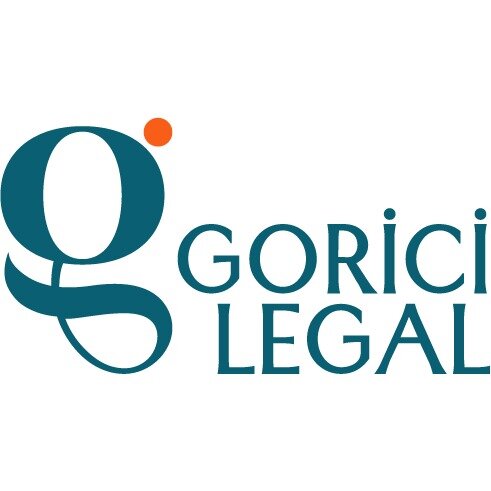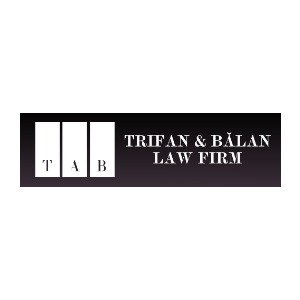Best Job Discrimination Lawyers in Romania
Share your needs with us, get contacted by law firms.
Free. Takes 2 min.
Or refine your search by selecting a city:
List of the best lawyers in Romania
About Job Discrimination Law in Romania
Job discrimination in Romania is governed by national and European Union laws aimed at ensuring equal treatment in employment and occupation. The Romanian Constitution and the Labor Code emphasize equality for all employees, prohibiting discrimination based on gender, age, race, ethnic origin, nationality, religion, disability, sexual orientation, or political beliefs. The National Council for Combating Discrimination (CNCD) is the principal body responsible for ensuring adherence to these laws and addressing complaints related to discrimination.
Why You May Need a Lawyer
Experiencing job discrimination can be a complex and emotionally challenging situation. Legal assistance may be required in the following scenarios:
- Instances where an employee is unfairly dismissed or demoted due to discriminatory practices.
- Cases of harassment at the workplace based on protected personal characteristics.
- Situations where discrimination is subtle, such as unchecked biases in promotions and pay raises that are difficult to prove without legal expertise.
- Need for guidance in filing a complaint with the CNCD or civil courts to seek redress and compensation.
- Difficulties in negotiating with employers or mediating workplace grievances.
Local Laws Overview
Key aspects of Romanian laws relevant to job discrimination include:
- The Constitution of Romania: Ensures equal protection and treatment for all citizens.
- The Labor Code: Prohibits direct and indirect discrimination in employment and outlines rights for equal pay and treatment.
- Law No. 202/2002 on Equal Opportunities for Women and Men: Focuses on eliminating gender-based discrimination.
- The Anti-Discrimination Law: Establishes the CNCD and provides a framework for lodging complaints and seeking remedies for discrimination.
- European Union Directives: Provide an overarching legal framework that influences national legislation on non-discrimination in employment.
Frequently Asked Questions
What is considered job discrimination in Romania?
Job discrimination involves unfair treatment based on characteristics such as age, gender, race, ethnicity, disability, or sexual orientation, which affect hiring, promotions, salaries, and workplace conditions.
Who can I contact if I face discrimination at work?
Complaints can be addressed to the National Council for Combating Discrimination (CNCD) for investigation and resolution. Legal assistance from a lawyer specializing in labor law is also recommended.
Is there a time limit for filing a discrimination complaint?
Yes, typically, complaints must be filed with the CNCD within one year of the discriminatory act. Consulting with a lawyer can offer clarity regarding deadlines.
Can I be fired for reporting discrimination?
Romanian law prohibits retaliation, including termination, against employees who file discrimination complaints. Legal recourse is available if retaliatory actions occur.
What types of evidence are needed to prove discrimination?
Evidence can include emails, witness testimonies, official reports, employment records, and other documents supporting claims of discrimination.
How can a lawyer help me with my discrimination case?
A lawyer can assist in collecting evidence, representing you in negotiations or court proceedings, and advising on legal strategies to enforce your rights.
Can discrimination cases be settled out of court?
Yes, many cases are settled through negotiation or mediation, which can be faster and less adversarial than court proceedings.
What are the potential outcomes of a discrimination complaint?
Outcomes can include compensation for damages, reinstatement to a job, policy changes within a company, or other remedies deemed appropriate by the CNCD or court.
Are there any costs involved in filing a discrimination complaint?
Filing a complaint with the CNCD is generally free of charge, although legal representation may involve costs. Discuss fee arrangements with your lawyer beforehand.
How long does it take to resolve a discrimination claim?
The timeline can vary depending on the complexity of the case and route taken (CNCD vs. court), from a few months to over a year for final resolution.
Additional Resources
For more information and assistance related to job discrimination in Romania, consider the following resources:
- National Council for Combating Discrimination (CNCD): The primary body for addressing discrimination complaints in Romania.
- Trade Unions: These organizations can provide support and advice to employees facing workplace discrimination.
- Romanian Bar Association: Offers a directory of qualified lawyers specializing in labor law and discrimination cases.
- Non-Governmental Organizations (NGOs): Such as ACCEPT (focused on LGBTQ rights) and the Roma Center for Social Intervention and Studies (Romani CRISS), which can offer support and advocacy.
Next Steps
If you believe you have experienced job discrimination, consider taking the following steps:
- Document the Discrimination: Gather and organize all relevant evidence, including communications and witness accounts.
- Consult a Lawyer: Seek legal advice to understand your rights and the strength of your case.
- File a Complaint: Lodge your formal complaint with the CNCD or pursue action through the courts with legal representation if necessary.
- Engage in Mediation: Explore potential negotiation or mediation with your employer to resolve the issue, if feasible.
- Stay Informed: Keep abreast of any developments in laws or regulations that may impact your case.
Taking informed action can help protect your workplace rights and achieve the justice you deserve.
Lawzana helps you find the best lawyers and law firms in Romania through a curated and pre-screened list of qualified legal professionals. Our platform offers rankings and detailed profiles of attorneys and law firms, allowing you to compare based on practice areas, including Job Discrimination, experience, and client feedback.
Each profile includes a description of the firm's areas of practice, client reviews, team members and partners, year of establishment, spoken languages, office locations, contact information, social media presence, and any published articles or resources. Most firms on our platform speak English and are experienced in both local and international legal matters.
Get a quote from top-rated law firms in Romania — quickly, securely, and without unnecessary hassle.
Disclaimer:
The information provided on this page is for general informational purposes only and does not constitute legal advice. While we strive to ensure the accuracy and relevance of the content, legal information may change over time, and interpretations of the law can vary. You should always consult with a qualified legal professional for advice specific to your situation.
We disclaim all liability for actions taken or not taken based on the content of this page. If you believe any information is incorrect or outdated, please contact us, and we will review and update it where appropriate.
Browse job discrimination law firms by city in Romania
Refine your search by selecting a city.

















